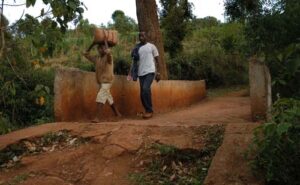Tom Knudson
- 2007

Fellowship Title:
- The Global Impacts of America
Fellowship Year:
- 2007
Canadian Wetlands Produce Fuel for U.S.
Like a great silver snake, the Athabasca River glides though a spongy-wet wilderness of spindly forests, lakes and marshes 650 miles north of the U.S.-Canada border. Breathe deeply, though, and you catch a whiff of fresh, hot tar. In the river, fish are speckled with shiny, wart-like blisters. And in the tiny Indian village of Fort Chipewyan, people are coming down with leukemia, bile duct cancer and other diseases. Those who aren’t physically sick are worried sick. Much of their unease is directed upstream at a moonscape of strip mines, tailings ponds and clouds of dust and gases, including climate-warming carbon dioxide. What’s being clawed from the earth there may surprise you. It’s America’s next tank of gas. As reserves of crude oil tighten and gas prices soar, the quest for a backup energy source grows more heated. Already, a biofuels industry based on corn is booming. There are dreams of adding switch grass and wood chips to the mix, perhaps one day running cars on cleaner hydrogen. In northeast Alberta, though, the race for

Investigative Report: Promises and Poverty
Starbucks calls its coffee worker-friendly,but in Ethiopia, a day’s pay is a dollar Text and photos by (APF Fellow) Tom Knudson – Bee Staff Writer APF fellow Tom Knudson’s article on Starbucks was published jointly by the Sacramento Bee and the Alicia Patterson Foundation.To access a video slideshow and satellite image, please go to:http://www.sacbee.com/101/v-email/story/383817.html Sunday, September 23, 2007 GEMADRO, Ethiopia – Tucked inside a fancy black box, the $26-a-pound Starbucks Black Apron Exclusives coffee promised to be more than just another bag of beans. Not only was the premium coffee from a remote plantation in Ethiopia “rare, exotic, cherished,” according to Starbucks advertising, it was grown in ways that were good for the environment – and for local people, too. Companies routinely boast about what they’re doing for the planet, in part because guilt-ridden consumers expect as much – and are willing to pay extra for it. But, in this case, Starbucks’ eco-friendly sales pitch does not begin to reflect the complex story of coffee in East Africa. Inside the front flap of Starbucks’ box
